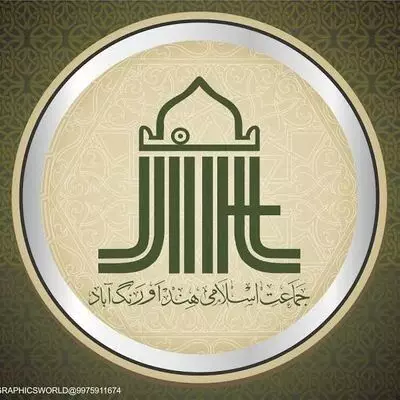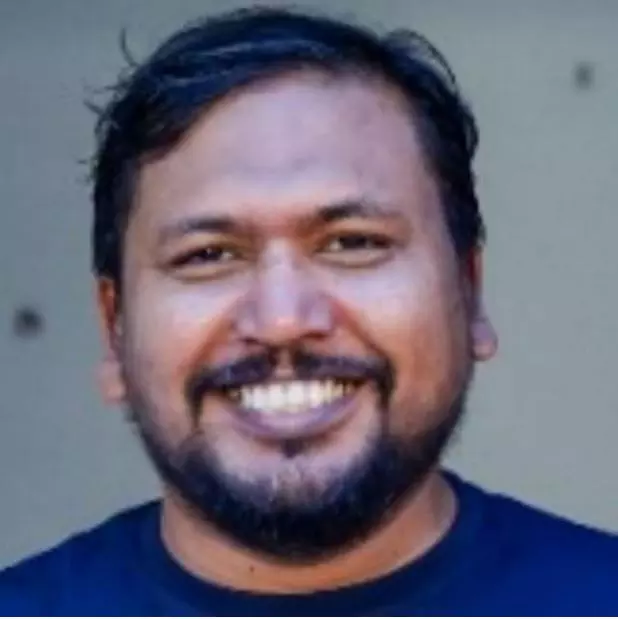
Jamaat at @75: Where does it fail to enter people's hearts?
text_fieldsOn a fine evening in 1996, a religious debate took place at Ernakulam Town Hall, where Dr Zakir Naik was the main speaker. Despite not having attained fame or controversies at that time, he was reading and citing chapters and verses from various religious scriptures to address questions and doubts. During this program, a person named Krishna D Pucha asked a simple and beautiful question: "Will Allah love me?" It was a simple question which can be addressed in one line or by quoting a variety of verses from the Quran.
But Dr Naik’s curt response “I am not an expert in love, but an expert in the Quran” would have pained the questioner for not having the expected answer from the speaker. However, this writer, believes from childhood that it is Allah who created the entire universe, and it is this absolute power to give food to every creature it is in the sky or fish in a house well, or a blue whale in the sea, was saddened at the answer due to the possible insult felt by the questioner. Many events that are declared as forums of debate, dialogue or religious interactions often end up as a show of strength of the event's organizers. Many experiences left the same feeling with this writer. Despite this, the Jamaat-e-Islamitried to turn the discussion forums into places of meetings where people could come to understand each other and respect different beliefs, rather than argue to win. The organisation invited leaders, priests, and activists of different religions to share the sweetness of Iftar and celebrate festivals together. The group initially started with a mission to reduce poverty and continues to focus on justice and equality. The sight of people, including Justice V.R. Krishna Iyer, Member of Parliament George Eden, and others, arriving at the Marine Drive Eid gah to join in the joy of the festival is still vivid in the memory of many.
Overcoming Controversies: Path to Recovery
When I first learned about Jamaat-e-Islami, it was surrounded by opposition and accusations, with even non-experts pointing fingers at them for illegal activities. The organization has faced a ban twice when no single follower of the outfit had to face charges of violating the law. It is believed that there are specific interests behind these allegations. Even before the judgment allowing the construction of a temple on the site of the demolished Babri Masjid in Ayodhya was made, various parts of the country had started making pillars, towers, and sculptures for the construction of the Ram Temple. Similarly, decades before ascending to power at the Centre, the Hindutva activities had been in the process of building a Hindu state. It was around this time that the allegation that the Jamaat-e-Islami was trying to establish a theocratic state was at its peak. Those who oppose Sangh Parivar- the Left Wing activists, liberals, Muslim organizations, and volunteers have been vocal against the idea, with intellectual leaders of this idea using various media to spread their message. While the allegations have certainly put pressure on Jamaat-e-Islami, they have not wasted their energy in responding to them.
Even without putting any effort into building a nation, Jamaat-e-Islami has managed to positively impact many lives. They have courageously stepped forward to empower communities affected by communal riots and natural disasters, as well as those who have been neglected and oppressed by others. For example, when Marad near Kozhikode in Kerala was in turmoil and passions high, even the Chief Minister of Kerala had to turn back, but Jamaat-e-Islami was able to boldly enter the scene and calm the tempers of troubled people. In many places in north India, where riots had raged Jamaat-e-Islami has provided legal aid to those affected. They also work to raise awareness about human rights violations such as fake encounters, massacres, bulldozer raj, and citizenship discrimination, well aware of, and in spite of, the limitations of their small team.
Jamaat-e-Islami stands out among other religious organizations due to their balance and fairness in relief work during troubled times. This has been evident in their response to various disasters and crises, such as the continuous floods in Bihar's Kosi region where they provided aid before even the government and their representatives arrived. They have also adopted villages in earthquake-hit areas of Maharashtra, Gujarat, Bengal, and Bihar, demonstrating their commitment to relief efforts. The organization has been praised for their care and even-handedness in its campaigns, and its courage to rise up and take action in India. This record lends weight to its balance as the Jamaat completes its 75th year.
Jamaat-e-Islami's failure to address caste issues
Even as its performance stands out as significant, and makes an appeal among the wider population, Jamaat-e-Islami is not a mass-based organization, and its acceptance and perception among Muslims are still debatable. Despite the richness and distinctness of their form and movement, they are unable to fully integrate into society. This can be compared to a cute house that people are hesitant to open and see its interior. The root of this issue is not adverse campaigns or government interventions, but rather the caste system – the same failing of left-leaning political parties.
In India, caste influences job opportunities, education, positions, and even access to basic necessities like drinking water. Although Islam doesn't recognize caste or ethnicity, Indian Muslim life is not entirely free from it. However, it is not possible to understand the situation from a state like Kerala, where many Muslims have emigrated to the Gulf and have actively participated in politics and education and there has been a second renaissance that has limited the influence of caste to some extent. Nonetheless, a Brahmanical caste system within Islam still exists in India, especially in the North, where some Muslims still consider themselves to be of higher status and look down on 'lower caste' Muslims. Even after converting to Islam, some people continue to proudly identify themselves with their pre-Islamic Rajput, Chaudhary, and Rathode caste identities as Sayyids and Ashrafs among Muslims. In Muslim communities, those with higher caste status dominate power centres and political parties, leading to disregard and disdain towards lower caste Muslims. Backward communities and individuals who convert to Islam, such as the Ansaris who were previously weavers and gardeners, continue to face discrimination. The Sachar Committee has highlighted the challenges faced by Dalit Muslims, while the Pasmandas are another group facing similar challenges.
Notable Muslim organizations have come forward to declare solidarity with Dalit and other backward communities who are being oppressed and call out casteism for what it is. However, these organizations have not shown the intellectual courage needed to protest against the existing casteism within their own community. Jamaat-e-Islami Hind cannot claim to be different in this regard, of course not forgetting that Dr M. Abdul Haq Ansari, with his academic excellence, did become its all-India leader.
Jamaat-e-Islami could have triggered change by supporting protests led by leaders like Ali Anwar Ansari, who rose from the Pasmanda community, for their rights and equality. No Muslim leaders have shown the same courage as people like Justice Ramganatha Mishra, who recommended reservation for Dalit Muslims, VP Singh, who demanded the implementation of the Mandal Commission Report, and Nitish Kumar, who has given respectable seats to Pasmanda Muslims in his party. The largest Muslim organization in the country, Jamiat Ulema-e-Hind, has now after years recognized the reality of Dalit Muslims, but by then the Modi government and the Sangh Parivar had gone too far with schemes.
It is notable that Jamaat-e-Islami could promote women's education and bring them to the forefront of their organization. However, the stance they submitted to the Justice Verma Commission, suggesting the need for separate schools for boys and girls to prevent rape, makes them appear to be just another mulla group in North India. Though numerically less strong than political parties, Jamaat-e-Islami can still compete through media and social media; and with a number of self-proclaimed social media activists like political parties. But it is also worth mentioning that such activists fail miserably in maintaining the decency and precision, distinct features of this organization, as mentioned at the beginning of this article.























